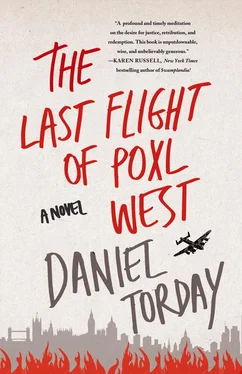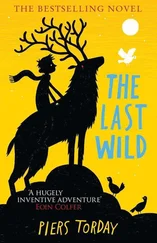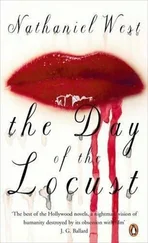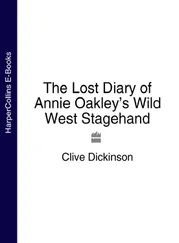“I was a squaddie in those days,” I said. “I drove around looking to save people like you.” Françoise didn’t say anything. “Later I flew a bomber. I trained on planes that bombed Germany. Bombers that flew deadly runs on Hamburg. That destroyed entire German cities.”
It was meant as a complement to the story Françoise had just told. An exchange of information. A chance at retribution. One of us was in her flat in Knightsbridge when a Luftwaffe bomb stole the visible world from her. The other trained on a bomber a couple of years later that either exacted revenge, or perpetrated the same evil upon Germany. Whichever it was — vengeance or villainy, quid pro quo or quid quid quid — I know only that in that moment I honestly thought she wanted me to tell her my story in exchange for hers.
Behind the skein of scar tissue that surrounded Françoise’s eyes the muscles in her face twitched. They’d gained their own new memory. Her eyes stayed fixed in their sockets, both the eye she’d been born with and the glass eye, identical in every way. Her eyes were open, but their senses were shut. Their rheumy stare was still directed over to the window above her sink.
“I might ask how that was for you, but to be honest, I don’t want to know,” Françoise said. “We all did what we needed these past years. I’m not here to conduct a postmortem.”
Françoise’s words suggested liberation, but in hearing her talk, I understood that what she needed to be liberated from was her past. Françoise was not a ghost; she did not do any haunting. She was haunted by a ghost of her own. Her ghost was a capricious young Czech kid who came into her life and flew just as he came, without explanation. What Françoise needed was the very liberation I thought I’d come to gain from her. From the pain of events long past.
From me.
In those moments, I began to understand something that wouldn’t grow in my conscious mind for months: I would have to stop. I had found Françoise and one day I would have to leave her. But that did not keep us from talking now. I could attempt to apologize once more, but now I understood something new about the nature of apology: It is the request for a gift. Forgiveness. It was not a gift I deserved.
“In the time before I found Heidi in Rotterdam,” I found myself saying, “I worked at an internment camp in Wunstorf. There I encountered a German youth who told me of his life in Hamburg while RAF bombers were dropping those very bombs on his city. It was awful.”
Françoise seemed to be looking at me. I know she could not see, but some atavistic instinct had placed her gaze upon me. Her whole face, for the first time since I had found her here in Park Sheen, was directed at me.
“And how was he?” Françoise said. Her meaning wasn’t clear. “Was his skin sloughed off from the flames? Had he lost his sight, a limb?”
I told her I hadn’t thought of it.
“No, no,” I said. “He didn’t bear any physical mark from the bombing.”
“Well, tell me, then, Poxl. Which of these things has made you understand? What do you make of seeing me here?”
“What really have I seen of you?” I said. “Not what I’ve wanted.”
“What do you want?” she asked.
“More,” I said.
And so I did what I’d yearned to do for so long then it might express the underlying momentum behind every emotion that had coursed through me since that day I found Heidi in Rotterdam: I stood. I walked across the room. I took Françoise by the shoulders and made her stand. Then I took each button of her blouse between my thumb and forefinger.
I removed it.
I removed her bra and then her skirt. I stepped back. All across her chest, above her breasts and on them, too, was that tan-pink watery flesh of the burn victim, that flesh that grows anew to replace what’s been stolen by fire. What the war had stolen was not replaced as it had been, but was replaced by slick, tight, shiny flesh. The nipple of her left breast was obscured by just such scar tissue. That is where I began. I began to kiss, just as I had previously kissed, what shrapnel had stolen. I kissed her and kissed her and kissed her: new Françoise. Some other man’s Françoise. A Françoise I’d wronged so badly, she would never be able to forgive me.
More Françoise.
She did not stop me, knowing as well as I did that this would be the last time. She did not express fear that William Rutherford might return and find us there, as I’d found my mother in her anteroom a decade earlier. She took her arms so that the crook of each elbow was against the very center of my neck. She flexed so I couldn’t breathe and it did not matter that I felt pain, that I was getting what I deserved, that the brittle cartilage of my throat made audible sounds against the sharp bone of her elbows. Neither of us even acknowledged it was happening. She placed kisses atop my head, where new tissue had come to replace the eruption where lightning had passed from my head into the electric cloud above Lübeck.
I moved to the nipple that was untouched by new tissue, but Françoise moved me back again. I pushed her down against the cold tile of that Park Sheen floor. Her arms released my neck. I opened my eyes and saw she was wearing no earrings. I thought for the first time since I’d again found Françoise that now maybe I had supplanted my mother’s suitors, all of them. I’d not been up this close to Françoise since I’d returned to London and I never would again, but I could see that, where when I saw her last her lobe was taut, now the hole had drawn long, and there were four little creases like I’d first seen those years before in Prague but I had only a moment before I had to close my eyes again, as both of her hands were rubbing me, then clutching me, one moving up and down and one moving in circles and for far too short a time — it had, after all, been so long since I’d made love erotic and romantic, love as brief as lightning and sedentary as family — we moved against each other, I moved inside her and she within me, and we moved and moved and moved until we were, until the end but never again, lovers.
My immeasurable gratitude to:
My editor at St. Martin’s, Hilary Rubin Teeman, who apparently was born with better judgment and a keener sense of how a story should be told than anyone on the planet. I can’t thank her enough for taking a chance on this book, and for putting in so much time while her sweet new little one was on his way into the world. And her assistant, Alicia Adkins, who clearly knows how to steer the ship.
My agent, Brettne Bloom, whose faith in early drafts can’t have been anything but that: faith. This novel wouldn’t have found its ideal reader (or a worthy title!) without her tireless efforts.
Willing readers and dear friends, for their counsel and care with a mercurial manuscript: Eric Rosenblum, who has been an ideal confidant and friend. For reads early and late, and for all their support: Rebecca Curtis, Deena Drewis, Laura Farmer, Miciah Bay Gault, Cordelia Jensen, Adam Levin, Adrienne Miller, Hilary Plum, Lauren Goodwin Slaughter, Daniel Smith, and Thomas Yagoda. Tyler Cabot and Genevieve Roth have provided friendship and advice over the years.
My mentors, the first among them George Saunders, whose generosity, time, and wisdom is more than a person should receive in a lifetime — I owe every good decision I’ve made to his advice, his example, and the hospitality he and Paula have offered. And all the writers at the Syracuse MFA program: Arthur Flowers, Mary Gaitskill, Amy Hempel, Mary Caponegro, Brooks Haxton, Bruce Smith, Mary Karr, Michael Burkhard, Sarah Harwell, David Yaffe, and Terri Zollo.
The English Department at Syracuse University, which made possible travel to the Czech Republic, Holland, Germany, and England. The team at the Jewish Book Council, who have provided support, as have the people at the Foundation for Jewish Culture. Lunches in Midtown with JBC director Carolyn Hessel have been a joy and an education. The people at the Samuel Johnson House in central London offered access and information.
Читать дальше












